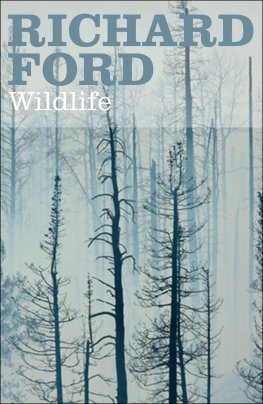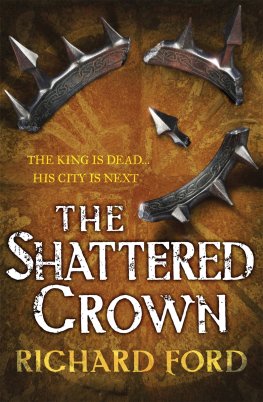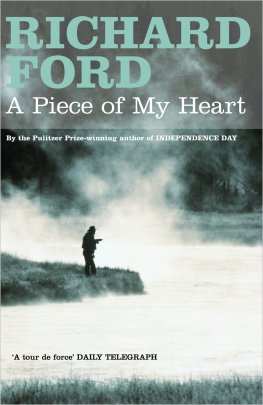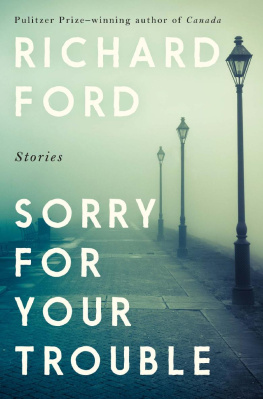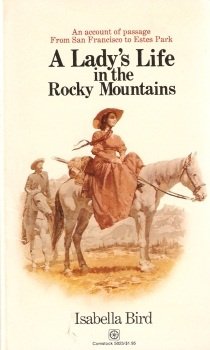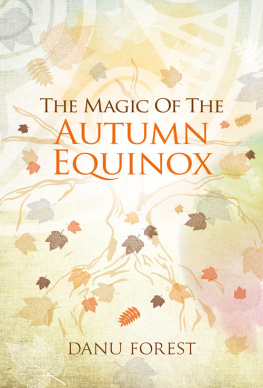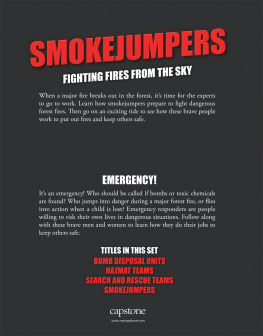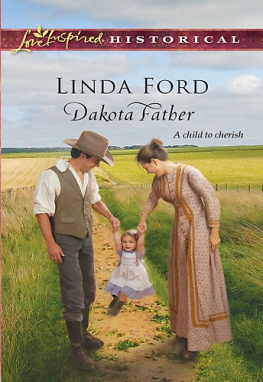Richard Ford - Wildlife
Here you can read online Richard Ford - Wildlife full text of the book (entire story) in english for free. Download pdf and epub, get meaning, cover and reviews about this ebook. year: 2006, publisher: Bloomsbury Publishing, genre: Prose. Description of the work, (preface) as well as reviews are available. Best literature library LitArk.com created for fans of good reading and offers a wide selection of genres:
Romance novel
Science fiction
Adventure
Detective
Science
History
Home and family
Prose
Art
Politics
Computer
Non-fiction
Religion
Business
Children
Humor
Choose a favorite category and find really read worthwhile books. Enjoy immersion in the world of imagination, feel the emotions of the characters or learn something new for yourself, make an fascinating discovery.
- Book:Wildlife
- Author:
- Publisher:Bloomsbury Publishing
- Genre:
- Year:2006
- Rating:4 / 5
- Favourites:Add to favourites
- Your mark:
- 80
- 1
- 2
- 3
- 4
- 5
Wildlife: summary, description and annotation
We offer to read an annotation, description, summary or preface (depends on what the author of the book "Wildlife" wrote himself). If you haven't found the necessary information about the book — write in the comments, we will try to find it.
Wildlife — read online for free the complete book (whole text) full work
Below is the text of the book, divided by pages. System saving the place of the last page read, allows you to conveniently read the book "Wildlife" online for free, without having to search again every time where you left off. Put a bookmark, and you can go to the page where you finished reading at any time.
Font size:
Interval:
Bookmark:
Richard Ford
Wildlife
Kristina
I wish to thank my friends Carl Navarre and Gary Taylor for their special generosities, which helped me write this book.
R.F.Chapter 1
In the fall of 1960, when I was sixteen and my father was for a time not working, my mother met a man named Warren Miller and fell in love with him. This was in Great Falls, Montana, at the time of the Gypsy Basin oil boom, and my father had brought us there in the spring of that year from Lewiston, Idaho, in the belief that people small people like him were making money in Montana or soon would be, and he wanted a piece of that good luck before all of it collapsed and was gone in the wind.
My father was a golfer. A teaching pro. He had been to college though not to the war. And since 1944, the year when I was born and two years after he married my mother, he had worked at that at golf at the small country clubs and public courses in the towns near where hed grown up, around Colfax and the Palouse Hills of eastern Washington State. And during that time, the years when I was growing up, we had lived in Coeur dAlene and McCall, Idaho, and in Endicott and Pasco and Walla Walla, where both he and my mother had gone to college and where they had met and gotten married.
My father was a natural athlete. His own father had owned a clothing store in Colfax and made a good living, and he had learned to play golf on the kinds of courses he taught on. He could play every sport basketball and ice hockey and throw horse shoes, and he had played baseball in college. But he loved the game of golf because it was a game other people found difficult and that was easy for him. He was a smiling, handsome man with dark hair not tall but with delicate hands and a short fluid swing that was wonderful to see but never strong enough to move him into the higher competition of the game. He was good at teaching people to play golf, though. He knew how to discuss the game patiently, in ways to make you think you had a talent for it, and people liked being around him. Sometimes he and my mother would play together and I would go along with them and pull their cart, and I knew he knew how they looked good-looking, young, happy. My father was soft-spoken and good-natured and optimistic not slick in the way someone might think. And though it is not a usual life to be a golfer, to make your living at it the way anyone does who is a salesman or a doctor, my father was in a sense not a usual kind of man: he was innocent and he was honest, and it is possible he was suited perfectly for the life he had made.
In Great Falls my father took a job two days a week at the air base, at the course there, and worked the rest of the time at the club for-members-only, across the river. The Wheatland Club that was called. He worked extra because, he said, in good times people wanted to learn a game like golf, and good times rarely lasted long enough. He was thirty-nine then, and I think he hoped hed meet someone there, someone whod give him a tip, or let him in on a good deal in the oil boom, or offer him a better job, a chance that would lead him and my mother and me to something better.
We rented a house on Eighth Street North in an older neighborhood of single-story, brick-and-frame houses. Ours was yellow and had a low, paled fence across the front of it and a weeping birch tree in the side yard. Those streets are not far from the train tracks and are across the river from the refinery where a bright flame burned at all hours from the stack above the metal tank buildings. I could hear the shift whistles blow in the morning when I woke up, and late at night the loud whooshing of machinery processing crude oil from the wildcat fields north of us.
My mother did not have a job in Great Falls. She had worked as a bookkeeper for a dairy company in Lewiston, and in the other towns where we had lived she had been a substitute teacher in math and science the subjects she enjoyed. She was a pretty, small woman who had a good sense for a joke and who could make you laugh. She was two years younger than my father, and had met him in college in 1941 and liked him, and simply left with him when hed taken a job in Spokane. I dont know what she thought my fathers reasons were for leaving his job in Lewiston and coming to Great Falls. Maybe she noticed something about him that it was an odd time in his life when his future had begun to seem different to him, as if he couldnt rely on it just to take care of itself as it had up until then. Or maybe there were other reasons, and because she loved him she went along with him. But I do not think she ever wanted to come to Montana. She liked eastern Washington, liked the better weather there, where she had been a girl. She thought it would be too cold and lonely in Great Falls, and people would not be easy to meet. Yet she mustve believed at the time that this was a normal life she was living, moving, and working when she could, having a husband and a son, and that it was fine.
The summer of that year was a time of forest fires. Great Falls is where the plains begin, but south and west and east of there are mountains. You could see mountains on clear days from the streets of town sixty miles away the high eastern front of the Rocky Mountains themselves, blue and clear-cut, running to Canada. In early July, fires started in the timber canyons beyond Augusta and Choteau, towns that were insignificant to me but that were endangered. Fires began by mysterious causes. They burned on and on through July and August and into September when it was thought that an early fall would bring rains and possibly snow, though that is not what happened.
Spring had been a dry season and lasted dry into summer. I was a city boy and knew nothing about crops or timber, but we all heard that farmers believed dryness forecasted dryness, and read in the paper that standing timber was drier than wood put in a kiln, and that if farmers were smart they would cut their wheat early to save losses. Even the Missouri River dropped to a low stage, and fish died, and dry mud flats opened between the banks and the slow stream, and no one boated there.
My father taught golf every day to groups of airmen and their girlfriends, and at the Wheatland Club he played foursomes with ranchers and oilmen and bankers and their wives, whose games he was paid to improve upon and tried to. In the evenings through that summer he would sit at the kitchen table after work, listening to a ball game from the East and drinking a beer, and read the paper while my mother fixed dinner and I did schoolwork in the living room. He would talk about people at the club. Theyre all good enough fellows, he said to my mother. We wont get rich working for rich men, but we might get lucky hanging around them. He laughed about that. He liked Great Falls. He thought it was wide open and undiscovered, and no one had time to hold you back, and that it was a good time to live there. I dont know what his ideas for himself were then, but he was a man, more than most, who liked to be happy. And it mustve seemed as though, just for that time, he had finally come to his right place.
By the first of August the timber fires to the west of us had not been put out, and a haze was in the air so that you could sometimes not see the mountains or where the land met the sky. It was a haze you wouldnt detect if you were inside of it, only if you were on a mountain or in an airplane and could see Great Falls from above. At night, when I stood at the window and looked west up the valley of the Sun River toward the mountains that were blazing, I would taste smoke and smell it, and believe that I saw flames and hills on fire and men moving, though I couldnt see that, could only see a brightening, wide and red and deep above the darkness between the fire and all of us. Twice I even dreamed our house had caught fire, a spark traveling miles on a wind and catching in our roof, consuming everything. Though I knew even in this dream that the world would spin on and we would survive, and the fire did not matter so much. I did not understand, of course, what it meant not to survive.
Font size:
Interval:
Bookmark:
Similar books «Wildlife»
Look at similar books to Wildlife. We have selected literature similar in name and meaning in the hope of providing readers with more options to find new, interesting, not yet read works.
Discussion, reviews of the book Wildlife and just readers' own opinions. Leave your comments, write what you think about the work, its meaning or the main characters. Specify what exactly you liked and what you didn't like, and why you think so.

